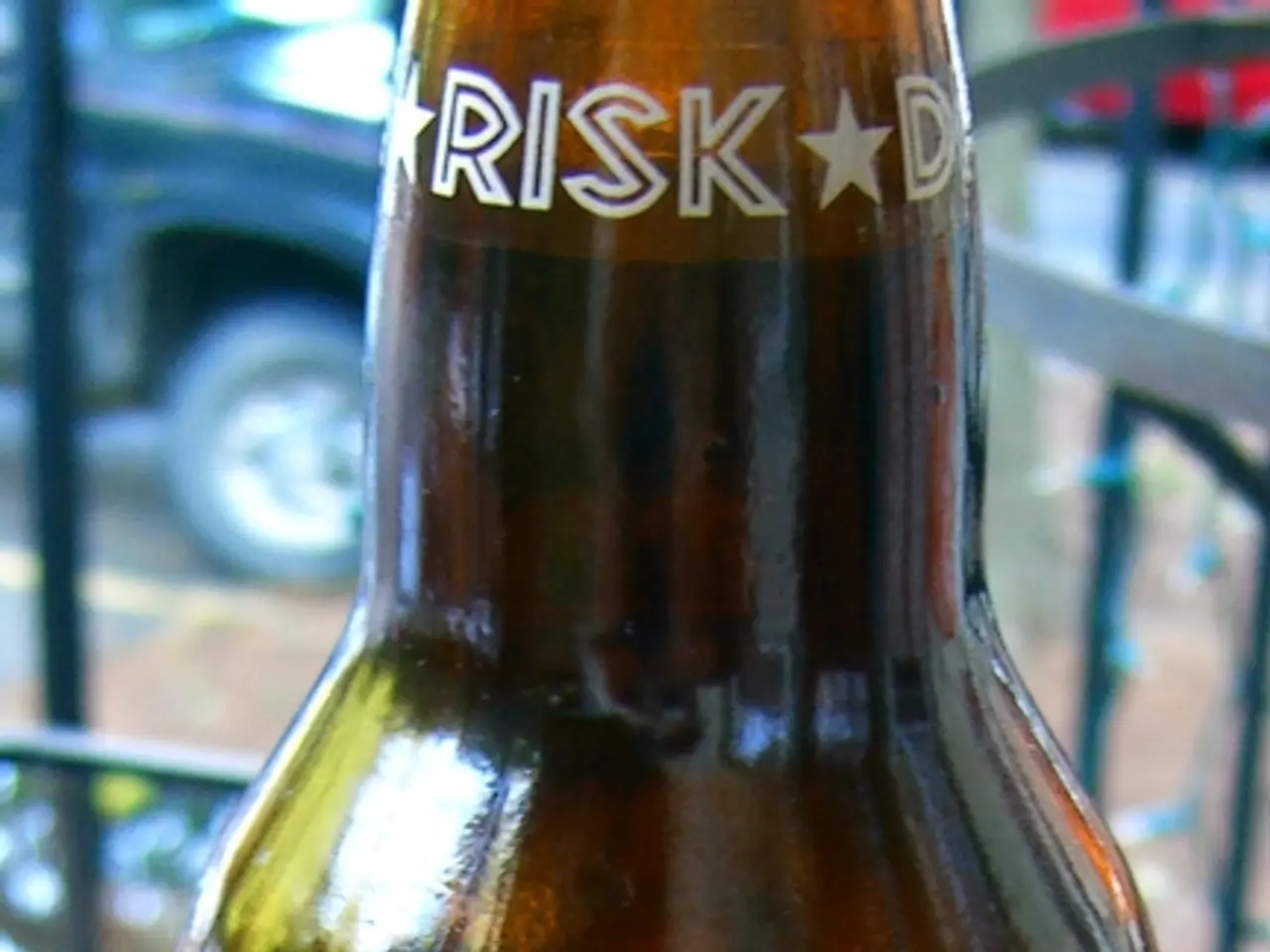Differentiating Genital Herpes from Pimples: An Examination
In the realm of sexual health, two common conditions that can affect the genital area are genital herpes and genital pimples, also known as folliculitis. While both may present with similar symptoms, such as red bumps and itching, they have distinct differences in cause, appearance, and recurrence patterns.
Genital herpes is a sexually transmitted infection caused by the herpes simplex virus (HSV). It is highly contagious and can spread through sexual contact with anyone who has the virus, even when a person is not experiencing symptoms. Symptoms may include clusters of small red, purple, or white blisters or red ulcers, which are often painful. In contrast, genital pimples are not contagious and are caused by a buildup of dirt or oil that clogs up the pores. They usually appear as raised red bumps with possible white pus heads, typically around hair follicles.
The key differences between these two conditions are outlined below:
| Feature | Genital Herpes | Genital Pimples (Folliculitis) | |-----------------------|-------------------------------------------------|---------------------------------------------------------| | **Cause** | Herpes simplex virus (HSV-1 or HSV-2), a viral infection, highly contagious | Bacterial, fungal, or viral infection of hair follicles | | **Appearance** | Clusters of painful red blisters that often break open to form ulcers or sores | Red, inflamed bumps or pustules around hair follicles; may be filled with white pus | | **Location** | Usually the genital area, anus, mouth, or lips; can also affect fingers, tongue, eyes | Can occur anywhere with hair follicles, including genitals, face, neck, chest, back | | **Pain and Discomfort** | Often more painful with intense itching and discomfort, especially during outbreaks | Mild to moderate tenderness or pain around the bump | | **Recurrence** | Lifelong infection with periodic painful outbreaks triggered by stress, illness, or sun exposure | Can recur if the underlying cause (e.g., bacteria, poor hygiene) is not treated | | **Transmission** | Spread by direct contact with active sores or virus shedding during sexual contact | Not contagious like herpes; related to follicle inflammation or infection | | **Additional Signs** | May have flu-like symptoms during initial outbreak; blisters form at site of contact | Typically localized to hair follicles, no systemic symptoms |
To distinguish between the two conditions, one should focus on the appearance, pain and discomfort, pattern and recurrence, and transmission context of the lesions. Herpes usually presents as clusters of small red blisters that are painful and may burst to leave sores, while pimples are raised red bumps with possible white pus heads usually around hair follicles. Herpes lesions tend to be more painful and itchy compared to pimples, which are usually less painful and more localized. Herpes outbreaks tend to reoccur periodically over a lifetime, often triggered by stress or illness, whereas pimples generally come from follicle infections and can be treated/resolved without lifelong recurrence. Herpes is sexually transmitted and highly contagious even without visible sores, while pimples are not contagious and arise from local follicle infection or irritation.
If you experience clusters of painful blisters or ulcers on your genital area, especially with recurring outbreaks or accompanying flu-like symptoms, it is important to consult a healthcare provider for proper diagnosis and treatment. Pimples or folliculitis usually have a less severe course and are managed with hygiene and topical treatments.
In short, genital herpes produces painful clusters of blisters that break into sores and is lifelong and contagious, while genital pimples are isolated inflamed bumps linked to hair follicles without contagiousness or lifelong infection.
- Genital herpes, a sexually transmitted disease caused by the herpes simplex virus (HSV), is highly contagious and requires prep for safe sexual activity.
- Diabetes and bipolar disease are not related to the genital health, but rather they are systemic conditions affecting metabolism and mood regulation, respectively.
- Colitis, a type of inflammatory bowel disease, does not directly affect genital health, but it may cause atopic dermatitis, a skin condition in some individuals.
- Psoriasis, a chronic skin and immune system condition, might not exhibit symptoms on the genital area like acne, but can contribute to a overall poor health-and-wellness.
- Crohn's disease, another type of inflammatory bowel disease, might affect the health but is unrelated to the genital area or sexual health, unlike genital herpes.
- Psoriatic arthritis, a joint condition associated with psoriasis, does not impact genital health or sexual health immediately, but it can negatively affect overall quality of life.
- HIV, an sexually transmitted virus, affects the immune system and can lead to various complications, including ulcerative lesions in the genital area, but it's not primarily related to genital pimples or folliculitis.
- In terms of predictive science, it's possible to test for certain genital infections, such as herpes or HIV, but the connection between genital pimples and other health conditions, like depression or migraine, is not as straightforward.
- As for sexual health and wellness, genital herpes poses a higher risk for reproductive complications, while genital pimples do not, given that they are not sexually transmitted.
- Some individuals may experience genital symptoms due to autoimmune conditions like atopic dermatitis or asthma triggered by stress, but they do not cause sexual health issues like genital herpes.
- When considering sexual health and hygiene, maintenance practices can prevent the occurrence of genital pimples or folliculitis, but they do not provide protection against herpes or other sexually transmitted diseases.
- To maintain overall health, it's essential to observe and understand the differences between genital herpes and genital pimples to seek proper treatment and avoid confusion.




